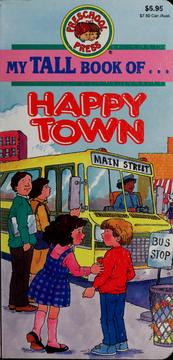One of the bedrock hallmarks of the Replacements was their myriad dichotomies and contradictions. And one of those is the way they all would go back and forth between searing honesty and flippant bullshit, sometimes in the same sentence.
Paul Westerberg once talked about his refusal to give 100%. "I guess it's the fear of failure. I don't want to give everything and have it turn out to be shit or have people not like it. I hold a little for myself. I'm lazy, too. [...] 'I.O.U.' has a nonsense chorus. I could sit down and get words to fit that, but I figure it doesn't need it. It sounds good enough to me."
It's not hard to look at even some of their greatest songs and pick out the word or line which would seem to prove this admission true.
"Happy Town" is one of the shortest songs on an album of short songs. And it's interesting, because it feels like, for once, rather than go with a line or two that are just okay, or a nonsense chorus that sounds good enough, Westerberg simply decided to go minimalist; if there are few words, less chance of them being wrong, perhaps. And the result is a hard, snappy little gem which says its piece and gets out. And what's more characteristically dichotomic than a song called "Happy Town" about a place which is neither a town nor in any way happy?
The track begins with the sound of the band—or Paul and Tommy, at least—warming up and noodling slightly, in an atmospheric way, before the song proper kicks in.
And what a lead-off. Westerberg didn't lack for great opening lines, and if this doesn't quite reach the level of:
Read about your band in some local pageDidn't mention your nameShared a cigarette for breakfastShared an airplane ride for lunch
You and I fall togetherYou and I sleep aloneLook me in the eye then tell me that I'm satisfiedWell, a person can work up a mean mean thirst after a hard day of nothin' much at allI'll write you a letter tomorrowTonight, I can't hold a pen
it's certainly no embarrassment of a cousin, and the rest of the song keeps pace:
The plan was to sweep the world off its feet
So you sweep the garage for the neighbors to seeThe plan was to set the world on its earAnd I bet you don't know why you're here
The loose vocal triplets which lead into the chorus are an interestingly theatrical touch which adds just the right amount of musical tension, and will get more overt with each subsequent verse until it's nearly Broadwayian.
Who knew that avenue was bound for happy townHappy townHappy nowHappy townActors, authors, artists and thievesHave afternoon parties where nobody heavesFormer strippers and junkies and men of the clothAnd we all fell in line and got lost
It's interesting to note that Westerberg seems to feel actors, authors and artists are natural peers of thieves—and that just when he was trying heroin for the first time, he puts junkies in the same categories as strippers and men of the cloth.
Who knew that avenue was bound for happy townThe plan was to set the world on its earAnd I'm willing to bet you don't last a year
The plan was to set the world on fireBut it rains every day on the liar
In happy town
One of the things which makes "Happy Town" unusual in the 'Mats oeuvre is its lack of a bridge. (That and the organ solo played by fan and Heartbreaker Benmont Tench.) Not having a bridge might be one of the things which makes the song feel even briefer and lighter than its barely 3 minute run time.
The outstanding 'Mats book Trouble Boys postulates that in addition to being about Westerberg's dislike of rehab, this is a warning kiss-off to his soon-to-be-ex-bandmates—especially the "I'm willing to bet you don't last a year"—and maybe so. Maybe so. In fact, it probably is. But even more I think it's a classic example of Westerberg pointing fingers and flipping the bird to others when he's really talking to himself. Even if he didn't know it.

No comments:
Post a Comment